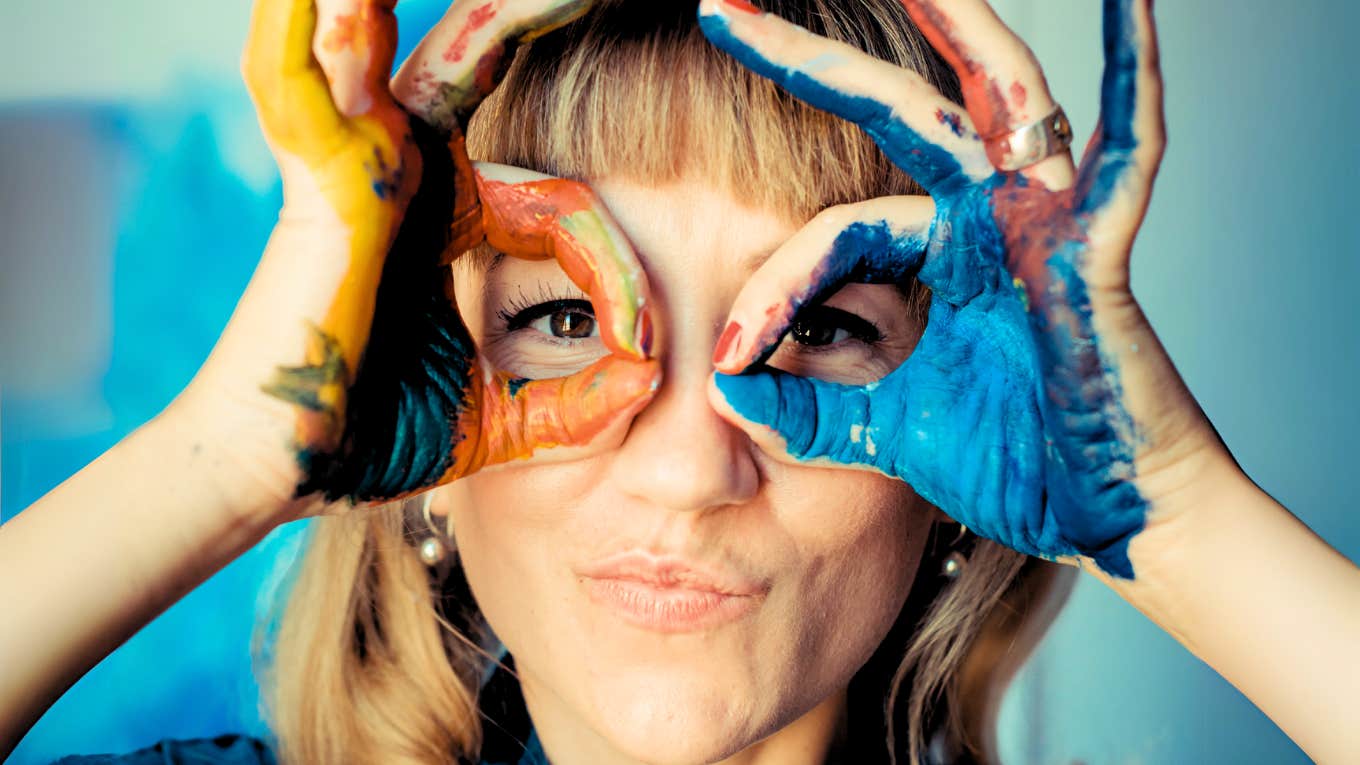Truly Creative Geniuses Share 7 Atypical Traits, According To Psychology
Creativity is like a muscle to be built and used.
 Eugenio Marongiu | Canva
Eugenio Marongiu | Canva Everyone uses creative solutions throughout their day, without realizing it. From figuring out a route around heavy traffic to daydreaming about positive (or negative) things that might happen in the future, these are creative acts. Speaking is a creative act. Selecting what to wear and on, and on.
Simple ways we use our imagination or solve problems are all acts of creativity. That's the secret to tapping into the traits we share with the people who are truly creative geniuses and make a living by letting their creative side lead the way.
Truly creative geniuses share these atypical traits:
1. They know creativity does not necessarily equal skill
Being good at something does not make a person creative. Plenty of people develop mastery at something without having much capacity to become good at other things.
You may think someone is creative because they’re a good visual artist. That person has likely fostered a love of creating art. Over time, they have developed a repertoire of skill sets to pull from, according to research from The Journal of Creative Behavior. They have become flexible and creative when producing visual art.
2. They are able to easily adapt and learn in new ways
 Juice Flair via Shitterstock
Juice Flair via Shitterstock
Being creative in one domain just means you’re good in that area. That artist is no more creative than an accountant who figures out new ways to set up spreadsheets and translate their meaning.
Everyone can learn and grow. The higher that ability, the more you’re using your creativity. Maybe it’s time to stop labeling yourself as not very creative and find ways to foster new and existing talents.
3. They embrace their inner child
Creativity does more than create pretty music and pretty pictures, it enhances brain function and feelings of satisfaction with life. It opens novel ways of thinking, increases a sense of joy and purpose, and can act as an outlet for thoughts and feelings. Who doesn’t want that?
Anyone and everyone has some level of creativity, and that level can be increased. The hard part, for most of us, is that we shut down our desire to play with creativity when we were young. We were told we didn’t have talent or that only creative geniuses should bother — and that’s not you.
The good news is, you don’t have to be a genius at creative activity. A study in The Social Psychology of Creativity suggested you only need to have fun while giving it a shot.
Certain personality traits are common in highly creative people. Anyone can foster these traits to improve the flow of creativity in their life. Here is a look at these traits.
4. They have a growth mindset
Do you think people are born with an aptitude for certain creative abilities? Or, do you think anyone can learn to paint, play guitar, or write poetry? Whichever belief you subscribe to, this is your mindset.
A person who thinks creativity is something people are born with (or without) that can’t be changed has a fixed mindset. Alternatively, a person who sees creativity as something anyone can learn to improve has a growth mindset.
A growth mindset is vital to improving creativity. The idea here is to shift your thinking from “I can’t, I have no innate talent” to “Sure, why not see what I can accomplish with practice.” This shift in belief opens the doors to learning a creative activity without the need to feel gifted by genetics or some divine spark to get started.
5. They set learning goals
Similar to having a growth mindset, focusing on the practice, not the product, allows you to begin with lower expectations for yourself. If you’ve never drawn more than a stick figure, you can’t expect to be an expert at your first serious attempt at something more complicated.
Modern culture tends to focus on performance goals, or what you might think of as the outcome - the final product. If your focus is on drawing a perfect rendition of your dog and you can’t come close, you give up.
Having a learning goal means that you intend to improve, not create something perfect (or even good). You plan to learn some basic skills, have fun trying, and watch your progress over time, with practice. The expectation is on improving, not the finished result. Doesn’t that sound like a lot less pressure on yourself?
6. They have intrinsic motivation
 PeopleImages.com via Yuri A via Shutterstock
PeopleImages.com via Yuri A via Shutterstock
Intrinsic motivation means you’re motivating yourself. You’re doing the creative task because you want to do it, for the pure enjoyment of it. The opposite is extrinsic motivation, or doing something because you have to do it for work or the like. If you stick to intrinsic motivators, your focus is on the enjoyment of doing something because you want to. This is the one indicator of a creative person, as supported by research in the Creativity Research Journal.
Of course, it is possible to build intrinsic motivation into your workday. Sure, you need to produce whatever is being asked of you, but you can still decide to enjoy it for yourself. Find a way to impress yourself and it turns into intrinsic motivation, even if it’s also an extrinsic one.
7. They aren't afraid to try new things, even if they aren't good at it
Call to start those guitar lessons, knowing you may not show great aptitude at first, but who cares? You’re there to have fun, watch your progress, and love every minute of it.
Considering your mindset, goals, and motivation, going into a new project is a great way to make it fun while increasing your creativity. Whether you're doing work for your job or you’re picking up a new hobby, you can make it more enjoyable by thinking of it as practice. Stay focused on taking pleasure in watching yourself improve. Believe in your ability to improve and watch as you chip away at getting better and better.
This relaxed state of mind will loosen the flow of creativity and build your creative muscle. It’s more about the approach than the outcome. Creative personalities are those who enjoy the process.
Nicole Corbett is a certified hypnotherapist and shamanic healer who combines spiritual and intuitive traditions with hypnosis to help clients reframe and release old patterns.
